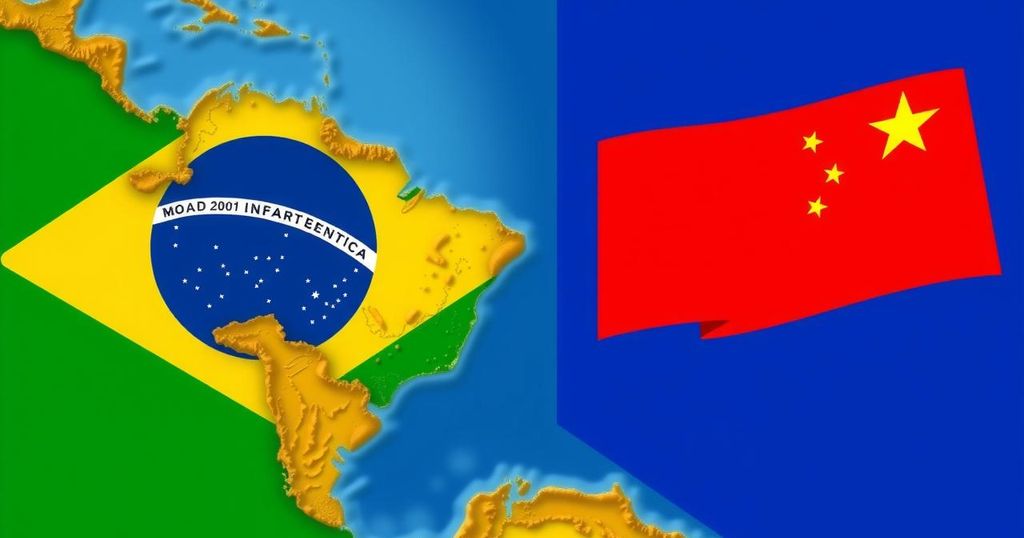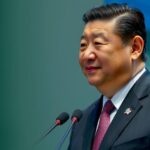China and Brazil Strengthen Economic Ties Amid Strategic Realignment
China and Brazil have upgraded their partnership significantly through nearly 40 agreements, enhancing cooperation in agriculture, clean energy, and infrastructure. The strengthening of ties aligns Brazil with China’s Belt and Road Initiative, despite not formally joining. This move is positioned amid a broader push for increased influence in the Global South, although concerns from Brazilian industry leaders regarding market competitiveness persist.
During President Xi Jinping’s recent visit to Brazil, the two nations significantly enhanced their partnership through nearly 40 bilateral agreements, marking a critical moment in China’s diplomatic pursuits in Latin America. This strategic alignment encompasses various sectors including nuclear cooperation, clean energy, agricultural trade, and infrastructure development, thus solidifying China’s presence in Brazil, South America’s largest economy. Noteworthy agreements include expanded market access for Brazilian agricultural products, which signals a commitment to bolster trade relations.
President Lula da Silva underscored China’s status as Brazil’s largest trade and investment partner, further aligning with China’s Belt and Road Initiative (BRI), albeit not formally joining. The strengthened collaboration was evident in discussions addressing global issues, where both leaders advocated for a more representative international governance structure benefiting developing nations. Xi emphasized this partnership as a means to enhance the influence of the Global South within a multipolar world order.
As relations reach new heights, the designation of their partnership under China’s “Community with a Shared Future for a more just world and a more sustainable planet” reflects a significant shift from past tensions. Historical context reveals a prior strain under former President Bolsonaro, which has now pivoted towards mutual benefit following Xi’s advocacy for Sino-Brazilian cooperation.
With trade between Brazil and China reaching more than $150 billion annually, new markets may yield approximately $450 million in exports, particularly in agribusiness. Simultaneously, both countries aim to reinforce their geopolitical significance amid rising support for emerging nations. However, Brazilian industrial leaders express caution over potential adverse impacts on local industries from increased Chinese market influence.
The recent expansion of Sino-Brazilian relations is pivotal, as both nations navigate an evolving global landscape marked by a desire to enhance their economic and geopolitical standing. China, under Xi Jinping’s administration, is vigorously expanding its influence in Latin America, particularly through economic partnerships that align with its broader Belt and Road Initiative. Brazil’s newly reinforced ties with China reflect its strategic maneuvering to diversify away from its historical reliance on traditional Western partners, thus adapting to shifting international dynamics while addressing the interests of its economic sectors.
In conclusion, Xi Jinping’s visit has led to a significant consolidation of China-Brazil relations, showcasing the strategic intentions of both countries to enhance trade, cooperation, and influence in the global arena. While agricultural exchanges and infrastructure agreements promise substantial economic gains for Brazil, concerns from local industries regarding increased dependency and competitive pressures from Chinese imports remain contentious issues that require careful consideration.
Original Source: www.intellinews.com








Post Comment